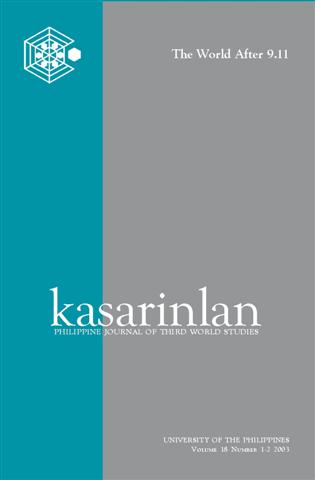The War on Terror in East Asia: From Cooperative Security to Preemptive Defense
Abstract
This article traces the evolution of the American-led global campaign against international terrorism with a specific focus on East Asia. It notes that at the initial stage of the campaign, the United States has been very pragmatic and circumspect when it cooperated with its Asian allies in neutralizing terrorist groups and other transnational criminals. The campaign generated a positive trend towards cooperative security as Washington provided military and intelligence assistance to several countries threatened by local and international terrorist movements. The initial phase of the war on terror in East Asia had also produced a rapprochement between the US and China whose relations were strained during the early part of 2001. However, Washington’s release of a new national security strategy in September 2002 has radically transformed the war on terror in East Asia and might create some problems in America’s efforts to foster cooperative security as states in the region are responding adversely to the strategy of preemptive defense. It is only natural for the East Asian states to react negatively to this development and that the US will do well to take into account these reactions in justifying and making the new defense posture acceptable to the member-states of the international community.
Published
2007-12-17
How to Cite
DE CASTRO, Renato Cruz.
The War on Terror in East Asia: From Cooperative Security to Preemptive Defense.
Kasarinlan: Philippine Journal of Third World Studies, [S.l.], v. 18, n. 1, p. 64-90, dec. 2007.
ISSN 2012-080X.
Available at: <https://journals.upd.edu.ph/index.php/kasarinlan/article/view/679>. Date accessed: 30 aug. 2025.
Section
Articles
Keywords
preemptive defense; security; war on terror
By submitting a manuscript, the authors agree that the exclusive rights to reproduce and distribute the article have been given to the Third World Studies Center.



